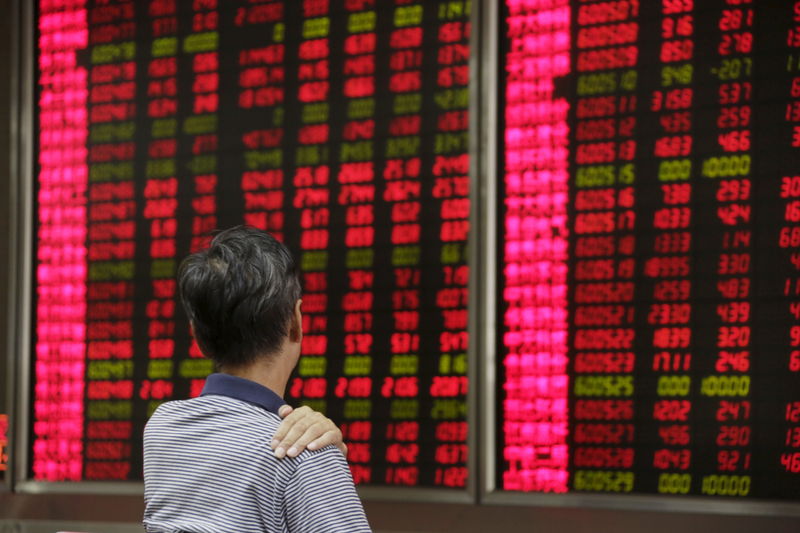By Sujata Rao
This month's wild ride in global stocks and fears of an emerging market crisis led funds to raise bond allocations to eight-month highs, even though most investors remain bullish on the outlook for Japan and the West.
The monthly Reuters survey of 47 fund managers and chief investment officers in the United States, Europe, Japan and Britain was conducted as Chinese authorities battled to stem an equity market collapse and bolster flagging economies.
A yuan devaluation and a steady stream of weak data have fanned fears that the economy is in worse shape than previously thought.
Chinese equities have fallen 45 percent from mid-June peaks, the resulting shock waves rippling as far out as New York and Frankfurt, wiping trillions of dollars off global stocks over the past month.
Steven Steyaert, senior portfolio specialist, Multi-Asset at NN Investment Partners, said investors needed to pay heed to possible feedback loops from markets to the world economy.
"For us, this environment justifies a more cautious asset allocation stance," said Steyaert, who has cut exposure to equities, real estate and credit.
"We have upgraded government bonds again after being much more cautious on them during most of the second quarter."
Broadly, the share of bonds in global balanced portfolios rose more than 1 percentage point to 37.2 percent. That is a whisker below December 2015 levels, which in turn were the highest in 18 months.
Allocations to Japanese bonds hit the highest since June 2012 at 15.1 percent, possibly due to the turmoil next door in China, that led Asian investors to reach for safer assets.
Euro zone bond allocations rose to 29.1 percent, up from 26.9 percent last month.
August was a torrid month for equities, with world stocks headed for their biggest monthly loss since March 2012 (MIWD00000PUS) and European equities losing more than 9 percent (FTEU3).
The share of equities in global portfolios was steady at 49.7 percent, though weightings to Europe and Britain fell 1 percentage point.
Peter Lowman, chief investment officer at Investment Quorum, said that while equity markets were due a breather, he did not expect any pullback to a lasting one.
"Fundamentals are much better than they were back in 2008, therefore investors are likely to return and reinvest some of their current overweights in cash back into the equity markets."
That's especially true of the United States, where equity allocations rose 2.7 percentage points to 41.7 percent.
Investors' faith in the U.S. recovery was confirmed this week by data showing the world's biggest economy grew 3.7 percent in the second quarter. What's more, the China turmoil has reduced chances that the U.S. Federal Reserve will raise interest rates in September.
The biggest victims of the China effect are probably emerging markets, where collapsing currencies and rising borrowing costs are threatening already weak economies.
Emerging equities have fallen 15 percent so far this year (MSCIEF). Currencies at record or multi-year lows against the dollar are raising fears of a spate of defaults by indebted countries and companies from the developing world.
Few investors appeared tempted by rock-bottom valuations on emerging stocks and bonds, and allocations were lower more or less across the board, from Asia to Latin America.
Steyaert of NN predicted that cheap asset prices might fuel a bounceback in some sectors and has therefore retained global equity allocations at "neutral" levels in his portfolio, rather than underweight.
But he was less sanguine on emerging markets.

"The most defensive tilts in our allocation stance remain focussed on the centre of the storm with firm underweights in the emerging markets region, in both equity and bond space, credit markets and commodities," he added.